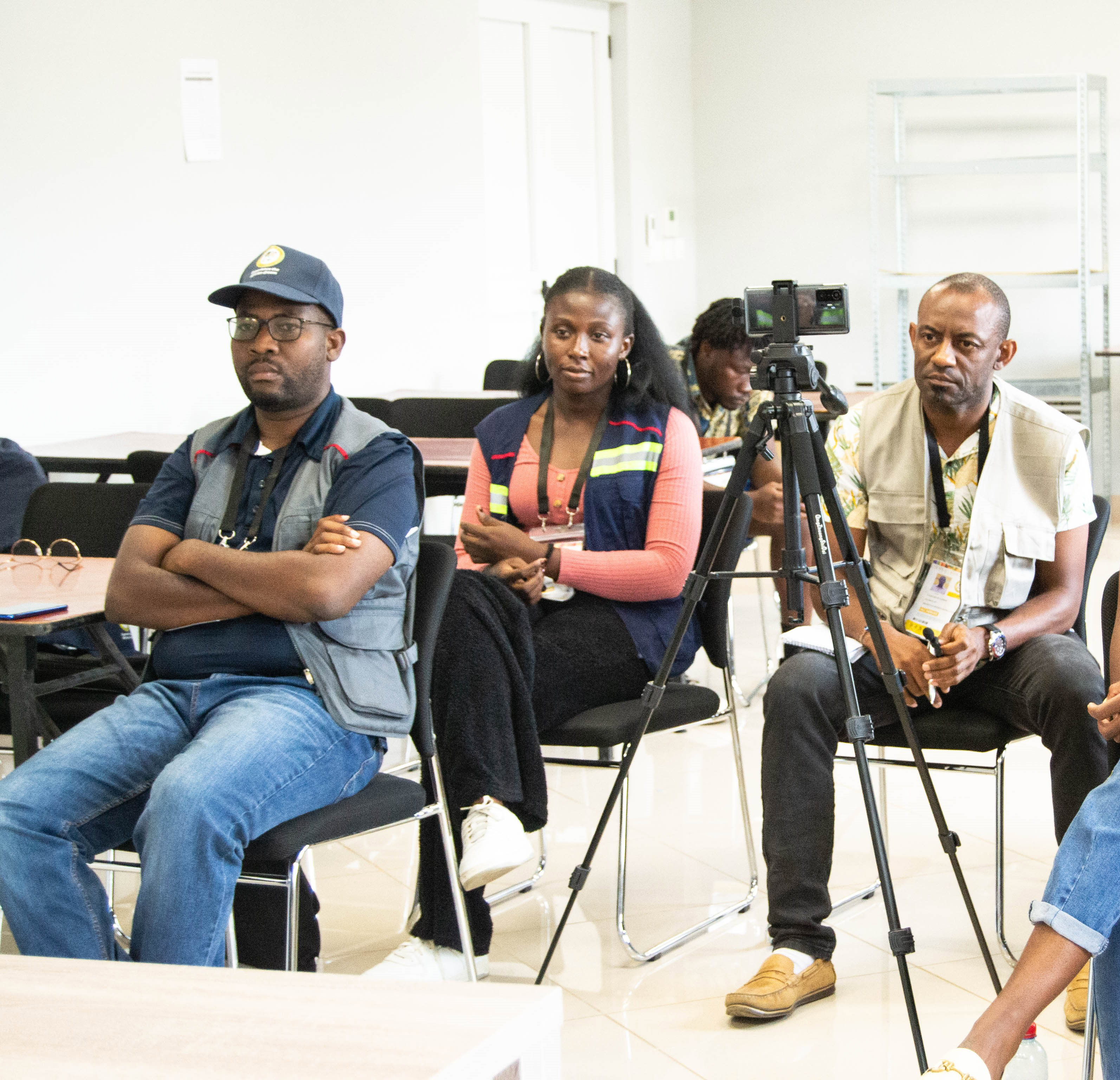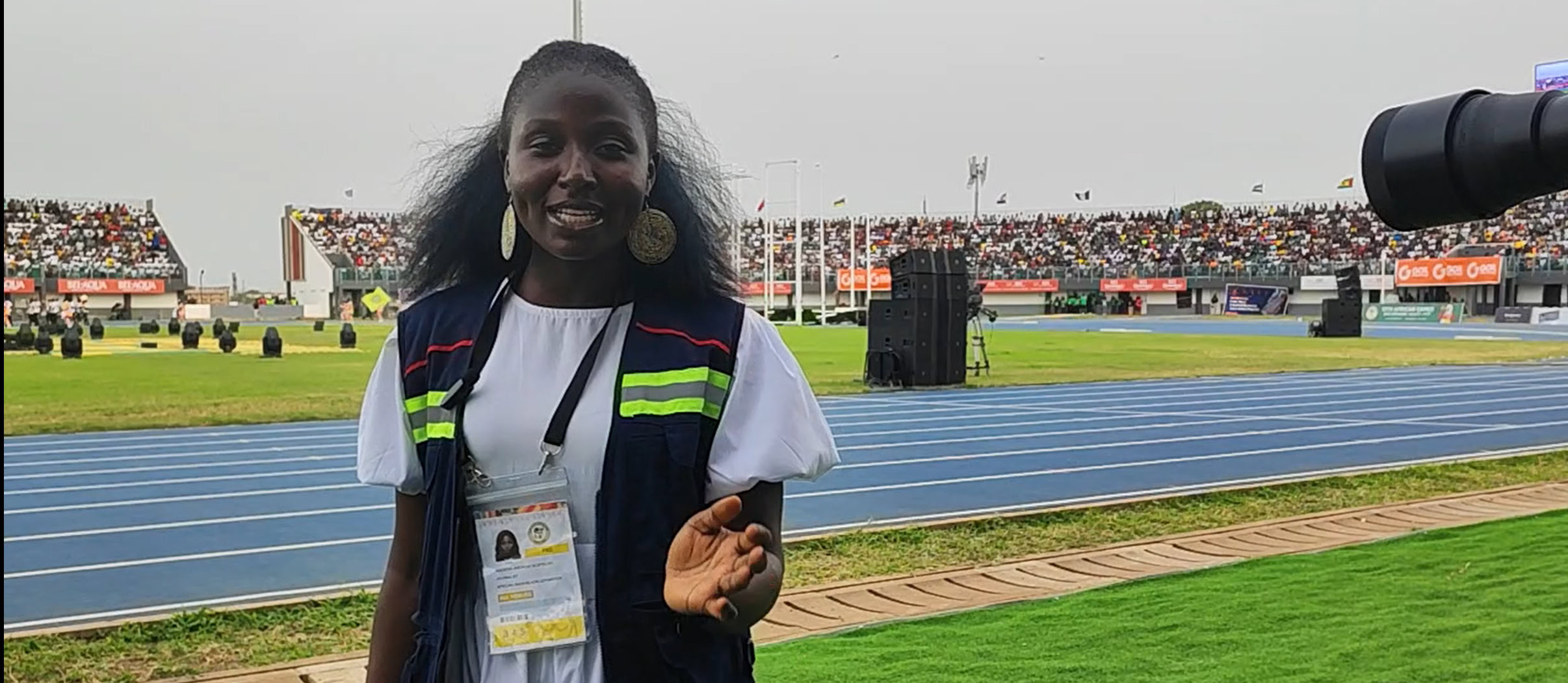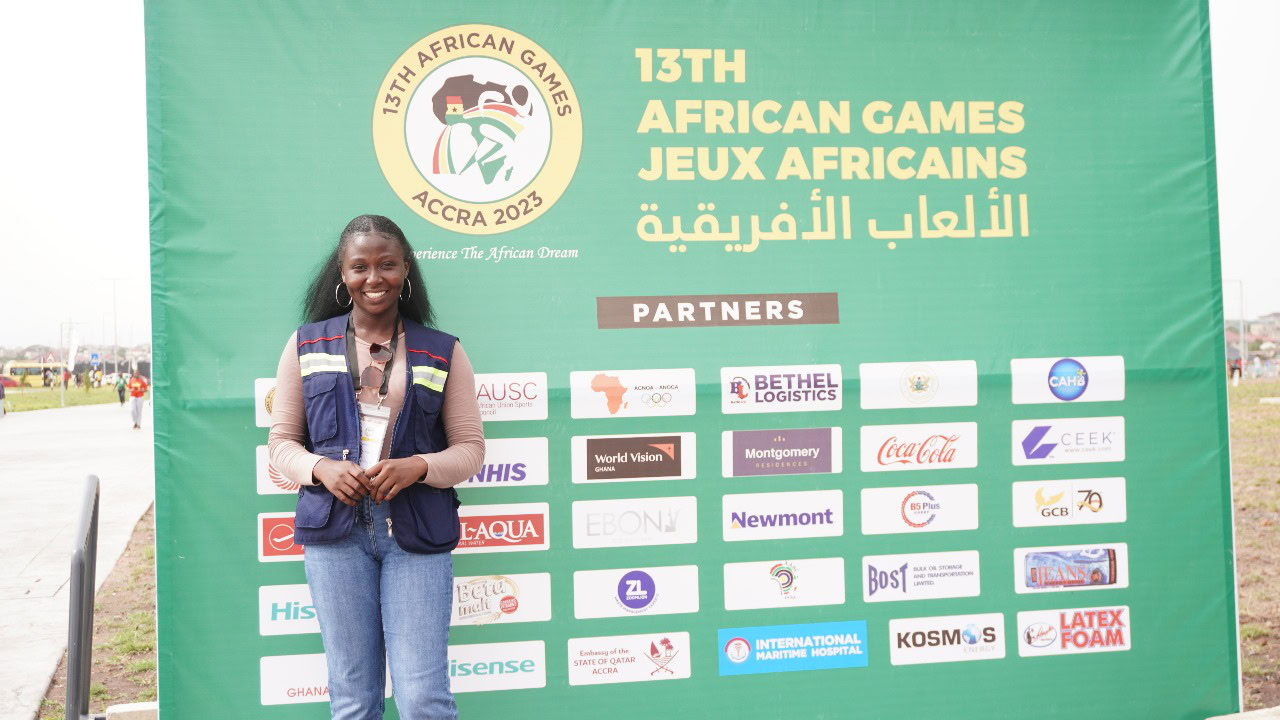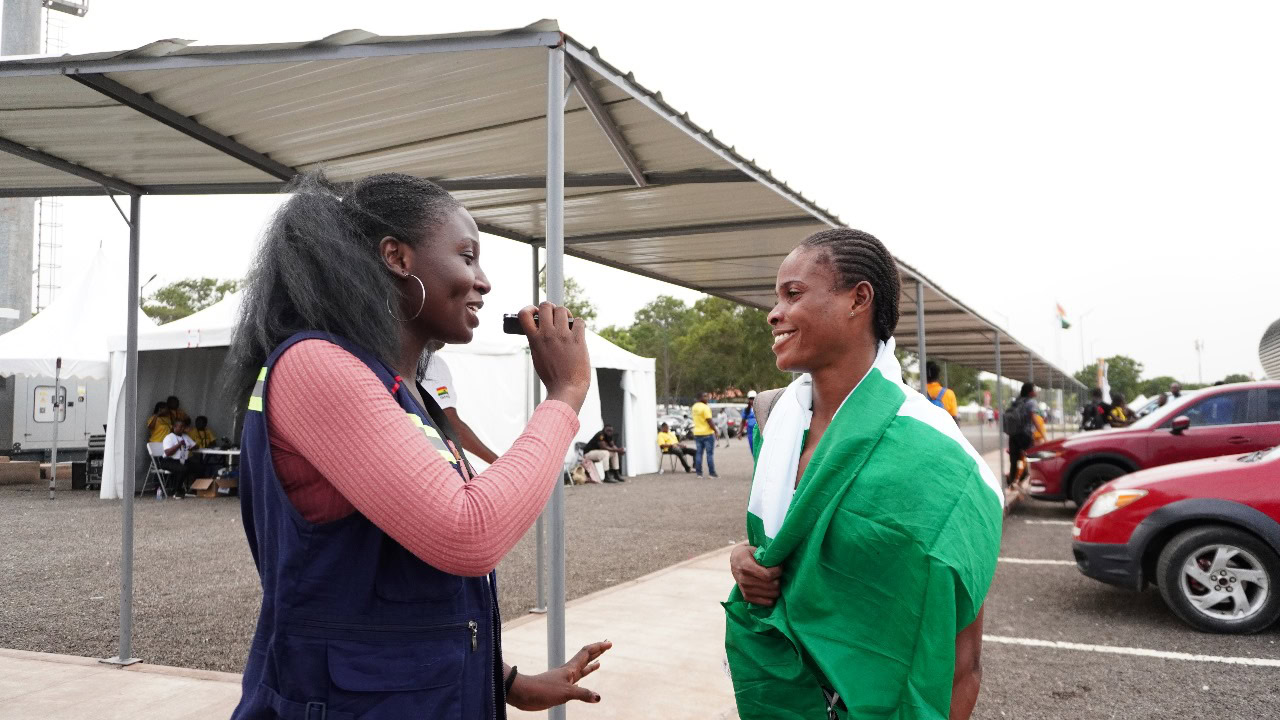Field Stories
Ten inspiring global nutrition stories
December 17, 2024
WP_Term Object
(
[term_id] => 2025
[name] => Stories
[slug] => all-stories
[term_group] => 0
[term_taxonomy_id] => 2025
[taxonomy] => news-category
[description] => Discover the personal stories of people whose lives have been impacted by better nutrition, and those working tirelessly to deliver it, and what’s top of mind for our technical experts as they share the latest on cutting-edge nutrition research, policy updates, and implementation guidance.
[parent] => 0
[count] => 331
[filter] => raw
)
Q&A with African Union Media Fellow
What is it like to be a reporter working on the front lines of nutrition and adolescent health? We had the opportunity to sit down with Nigerian journalist Adesewa Olofinko and learn about her experience reporting on the intersection of nutrition, adolescent health and gender in West Africa.
Posted on July 8, 2025
Adesewa Olofinko pictured interviewing the Minister of Agriculture Malawi at the African Fertilizer and Soil Health Summit in Nairobi Kenya.
The African Union (AU) Media Fellowship 2024-25 has been an opportunity to spotlight the nutritional challenges adolescents, particularly girls, face throughout Africa and what is being done to nurture future generations across the continent.
Five journalists across five AU geographies were selected to explore the theme of prioritization of adolescent nutrition in Africa, delving into the challenges and opportunities on the ground. Nutrition International sat down with fellow Adesewa Olofinko, a journalist based in Nigeria and showcasing reporting from West Africa, to ask about her experience and why more journalism on adolescent nutrition is needed.
How did you get started in journalism?

For me, it started as a passion. I was in university studying mathematics, but I was also passionate about telling stories. I volunteered as a writer for my faculty board and I became so interested in everything they did. I became the vice president for the campus journal while I was doing my studies.
After I left university, I decided I was going to pursue this. I realized that I really wanted to tell stories that will evoke positive social change. I volunteered with media houses, radio stations and then I got my first job in a professional capacity within a year of graduating. Ever since then I’ve gone from television to radio to print exploring different formats.
Why did you decide to apply to the AU Media Fellowship?
I’ve always been interested in changing narratives. I felt like Africa had a single-story narrative in a lot of ways, and in my little capacity I wanted to retell the narrative, especially when it comes to gender equality and feminism. So challenging narratives was something I was already really interested in.
When I stumbled on the advert for the fellowship, I realized OK, I want to take storytelling beyond my country, beyond Nigeria, to help tell the African story.

I saw this as a platform where you’re not just telling your own stories; you can learn from other journalists that are working in different parts of Africa. And so, when I applied and I got it, it was a very wonderful opportunity for me to receive training, to get into all these rooms, to learn from other people and fine tune my storytelling.
This specific fellowship explores the intersection of adolescent health, nutrition and equality. From your perspective, why do you think that focus is important?
The nutrition fellowship focuses on adolescents. They are one of the overlooked categories a lot of times in Africa. When it comes to nutrition as well, it’s one of the back stories that we don’t often pay attention to. When the nutrition fellowship came out, I felt like this was an area I would like to explore.
I thought that if I wanted to affect positive social change, this might be an opportunity for me to learn about nutrition, to learn about adolescent nutrition, or the imbalance in all these things. We got access to materials that would inform us and help us better inform the populace.
This intersection for me was great because not only is nutrition overlooked, at the same time, there’s an imbalance when it comes to gender. I’m Nigerian and I’ve investigated in other African countries. I know that the way women or girls are treated when it comes to food can be different. I’ve reported on it and I realized there is an imbalance in that aspect.
Within that, you’ve done some really interesting reporting. Did anything surprise or stand out to you during your reporting? Where you thought – ok wow, more people need to more about this?
There were two stories. The first was about nutrition labeling. Before I came into the fellowship, I didn’t pay attention to the micronutrients in my food. I didn’t know much about this. So this fellowship not just helped me, it’s helped me to help other people as well to understand you are what you eat.
The nutrition labeling story really made me realize that when we go to stores, a lot of times we don’t buy food because of the nutrition content in them, we buy because it’s affordable, which should not be the only reason. What about the nutrition content? What do you need? What does your body need? What does the adolescent need?

The other one for me would be visiting the internally displaced persons (IDP) camp. It opened my eyes a lot to nutritional deficiencies, especially for girls. I interviewed one girl who said she has been in different IDP camps. Not only is displacement a setback, but also the food they receive has an impact. That what you eat can inform how your brain develops, how your body develops, how you can dream. And it’s like this has been taken away from these young people.
That drew me to think about much more than simply reporting on that one story, but what can we do better, how we can tell stories better, so that policies are in place that make sure that even if you’re displaced, you’re getting the right nutrients.
You mention policy. In bringing to light different strategies, such as Agenda 2063 or the Africa Regional Nutrition Strategy, how are you able to connect the strategies to real world reporting?
In researching the stories, I was reading different policy documents realizing that there’s a failure to achieve the numbers they would like to achieve, that we’re always behind the target. The fellowship enabled us to tell stories in a way that people can relate to the information, in a way that people can understand, in a way that you can translate a big document into relatable content for people on nutrition.
For instance, I used to just know there was malnutrition. I didn’t know obesity was a form of malnutrition as well. This fellowship opened my eyes to that and a lot more people need to pay attention to what they eat.
On adolescent health and nutrition specifically, what do you think more people need to understand?
That nutrition is important to them and we fail adolescents if we as a society do not pay attention to what they eat. For instance, adolescent girls already go through so much. There are certain things that are needed for brain development, especially in the adolescent stage. Like I said in one of the articles, what we eat sometimes has a say on what the future can be. It doesn’t entirely determine what your future is, but it can have a say on your body growth and your brain development.
Nutrition of adolescents should be a priority for government and for all of us because they’re the future. Africa has the youngest population. These are the people who are going to determine what happens 20, 30, 40 years from now.
Would you recommend this fellowship to others, and if so, why?

Absolutely. The first reason would be because it opened my eyes a lot. You get to learn. You get access to documents that help you get informed. And with this right information, you can inform people better.
You can change things even in your own little way, because stories change people. Stories inform policy changes. Stories inspire people. I would absolutely recommend it. I’ve learned a lot. It has given me opportunity to work with other people. For instance, one of the journalists in Uganda, Nila, we meet up and talk about what we can do. How’s your story going? She’s also looking at working on an IDP camp story in Uganda. This is the kind of cross-collaboration opportunity that this fellowship has provided for me.
What’s next for you? What should people watch out for?
I will not stop reporting on nutrition. It’s something I’m now interested in. I’ve always told stories about gender inequality and the imbalance in nutrition is something I want to continue to spotlight.My storytelling has gone into intra-African relationships. What’s going on in the continent? What’s going on beyond the continent? What strategies are being developed? How does it affect the ordinary person?
This interview has been edited for length and clarity.
Read more about this cohort of AU Media Fellows and learn more about our work on adolescent nutrition.